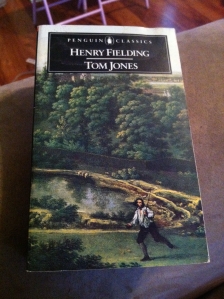
Mark Rylance as Thomas Cromwell (2015 Wolf Hall, scripted Peter Straughan)
‘Fortitude. … It means fixity of purpose. It means endurance. It means having the strength to live with what constrains you.’ — Mantel, Wolf Hall (a common theme in women’s novels since the 18th century)
Dear friends and readers,
I have ever found solace, comfort, models to channel in my reading. I am listening to a brilliant reading of Hilary Mantel’s Wolf Hall by Simon Slater (CDs in my car), and find I am perpetually enriched by new thoughts, insights, reminders of what I know to be importantly true put in new ways. One character whose thoughts and behavior out of grief I find myself remembering, is Thomas Cromwell’s.
Early in the novel his wife, Liz, dies suddenly, swiftly of the sweating or sleeping sickness (as it was called in the 1520s). Albeit quietly, he is intensely grief-stricken, misses her. While he has an affair with Liz’s sister, Joanne, because Joanne resembles her sister and is there, and does not remarry for more and far different kinds of reasons than that he finds her as an individual who provided support, comfort, a kind of meaning and stable sane mood to his life irreplaceable, nonetheless he dreams of Liz, finds himself trying to grasp her ghostly presence in his thoughts, his environment, he re-enacts talk with her.

POV Cromwell, coming up to Johann (Saskia Reeves), his sister-in-law, now loved

POV Cromwell, a moment later seeing Joanne as Liz (Natasha Little)
He compares what he sees other women doing to what she did. I am nearing the end of the novel where he acknowledges in passing thoughts his relationship to Liz has changed now, his feelings altered. The first year of her death his household did almost nothing to observe Christmas, more than four years later all holiday and other customs are encouraged.
Two or three days ago Slater read the passage where Cromwell at home, once again picks up Liz’s prayer book.

Early in first episode we glimpse Liz’s prayer book, as Cromwell talks of the Tyndale that has come by mail (steathily) and Liz turns away …
She had refused to read the Bible in English, would not listen to the liberating theology of Tyndale. There had been this uncrossable space between them, and yet he cherished the book. We see him muse over it at his desk, take it down from what seems to be a shelf (presumably in his bedroom); next to her name is the name of her first husband, and then below his own. This has hurt him out of jealousy — as also the names of their children together, two daughters because they died of the same sickness not long after, so out of grief and loss, and a son, now living still whom he does all he can for. The moment that means much to me is when he finds himself looking at the entry and crossing out her other husband’s name. He finds he can; he finds he feels better for this, looking about him. The whole thing no longer means as much or means differently. Beautifully authentically caught.
In the book, in the film adaptation, Mantel as Cromwell, Rylance as Cromwell mourn for many others beyond Liz, and mourn for themselves too.
Steady now, steady on.
This morning I found myself remembering a passage from Austen’s Sense and Sensibility (no need for me to have it read aloud to me, much less read it myself) where after she has the searing relevation that he has been engaged for four years to another woman, she reflects that no matter how busy she keeps herself, how much she refuses to indulge herself by remembering in solitude, there is still time enough for thoughts of him and what had been to rise to consciousness. But she holds firm, writes on at her desk (Sense and Sensibility was originally an epistolary novel).

The 1995 S&S film, scripted by Emma Thompson realizes just this moment (Thompson as Elinor)
Steady now, steady on.
I had been overbusy for many days and yesterday gave in to myself or could not get myself to take a long trip in the deadly heat (officially it felt like 107 fahrenheit) so did not go to the adaptation of a play by Thomas Middleton playing at the Gallaudet College: car, train, then try to find it for at least a 20 minute walk, and after a possible hour or so of play, reverse the experience. I preferred to stay in, read an essay on Fielding which helps me see his true integrity, fineness of feeling,
go swimming nearby, a six minute trip by car each way while listening to Wolf Hall, and then home to watch a beloved mini-series. But I felt terrible too. My unwillingness to go was a sign Jim was dead: with him there it would have been no trouble to go (he would have driven us, and had no trouble finding the place, and little trouble parking), I’d not have given it any thought; without him, watching these plays can be desolating as I’ve no one to talk to about them afterward. I cannot yet cross this out and yet I’m beginning to have no need to re-enact.
This morning like Elinor I found the thoughts about this would rise to the surface. I made my routine up for the day, and determined that the way I am living is not done simply because I can’t break the yoke of what I used to do. These things before me — my writing, reading, task routine, my breaks (today again swimming nearby) however meaningless now or to others are what I am, what I enjoy doing, what I understand, get fulfillment from.
Steady now, steady on.

Pussycats (my household) this morning
Miss Drake
Who we are determines what we notice and what we regard as worthy of notice, what we find significant…
—Robert Coles, Doing Documentary Work















